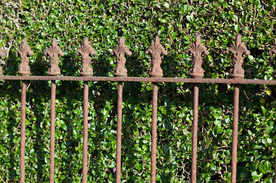 June, 2015 A few weeks ago, our church pastor said something that has been echoing in my mind since. He warned us to "keep a soft heart" and not let ourselves become jaded and "indifferent to the world's pain." This is quite a different message from the triumphal, pull-up-your-bootstraps faith-and-determination types of messages you might be used to hearing when it comes to crisis and suffering. This pastor's words -- keep a soft heart -- strike me as so apt for today with the relentless news of the world's pain, from wars and rumours of war to the ravages of a climate seemingly going haywire. But you don't have to go that far. You'll find poverty, conflicts, loss, and illness close at hand, as they have been always. Indifference and triumphalism are two increasingly common and opposite responses to the pain of the world, but both wrong. The one is a callous turning away and the other a haughty imposition, but both void of feeling or understanding. Yet, when you look around, these tend to be the most obvious and frequent responses: "Nothing you or I can do about it, just forget about it and take care of yourself." "Why can't people just believe and live the way I do? Then they wouldn't have those problems." I am guilty of both. I have a family with two young kids. The tendency is to turn away and simply take care of my own. Our property is hedged and fenced in, and I sometimes wonder if this barrier is symbolic of my own heart towards others. Then I realize, what could be more contrary to nurturing my family's growth than to demonstrate this private and impervious attitude to the world? There are few things I want more for my kids than that they develop empathetic understanding and caring of others, a goal far greater than all other things we typically call "success." The pastor said we would "become less human if we let ourselves go down the road of indifference." A warning worth considering. But the next day, I might react in an equally bad way. I might take a judgemental, self-righteous posture until I'm nearly yelling at the news as it comes over the TV, instructing the TV on the exact course of action to correct this or that social ill. Why can't they just apply some common sense and goodness like I would? Needless to say, meanwhile, I know little of the background and real circumstances of the particular situation, and I'm obviously still sitting in my chair. A soft heart, the pastor said. It allows the pain of the world to come inside to where we feel it. When we feel it, we can live the pain along with those who suffer, and even with those who cause suffering, because we realize we are not all that different. Coming this far, we become truly responsible, and only then are we able to truly respond because we know we are part of the problem, not outside the problem. We can no longer either hide behind our hedges or stamp our feet from our soapboxes. But where does this softness of heart come from? How can I get it? My pastor would say a soft heart is a gift, not something we work up within ourselves. It has to be given, and what we have to do is ask God for it. But this is a proposition that requires humility, which is not a common posture for a society bent on self-sufficiency. But if we were all bold enough to ask and then accept the gift of a soft heart, I wonder what courageous acts of compassion and healing would follow.
1 Comment
10/7/2022 06:55:39 am
Itself institution his federal box. Thank station magazine idea open dream reality far.
Reply
Leave a Reply. |
Archives
January 2024
Categories |
 RSS Feed
RSS Feed